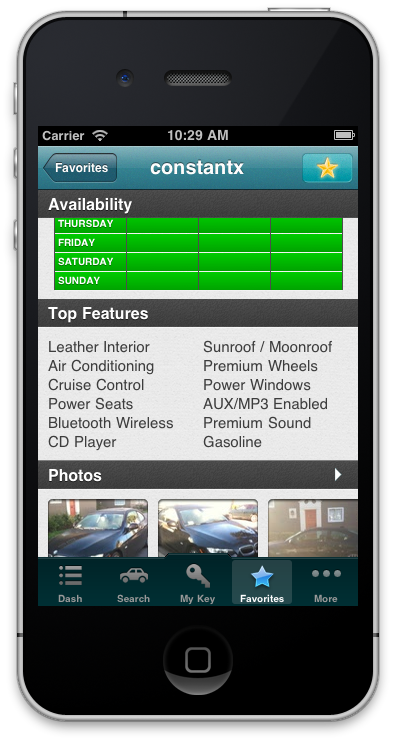 Personal carsharing is coming to Portland in February. The new service allows car owners to rent out their own cars and spotlights a new “collaborative consumption” business model. Managing Editor Linda Baker reports on Getaround.
Personal carsharing is coming to Portland in February. The new service allows car owners to rent out their own cars and spotlights a new “collaborative consumption” business model. Managing Editor Linda Baker reports on Getaround.
BY LINDA BAKER
Our 1996 Volvo Sedan isn’t pretty. Fossilized imprints of peanut butter and other assorted sandwiches dot the floor, while the seat cushions are so worn down, passengers risk inhaling bits of foam on every trip.
Things have languished thus for a while. But after talking to John Atcheson, vice president of Getaround, the San Francisco-based “peer-to-peer” carsharing startup, I’m thinking it might be time to spruce up ye olde family auto.
In February, with the help of a $1.7 million federal grant, Getaround will debut personal car sharing in Portland. The service will allow everyday vehicle owners to rent out their cars—to friends, neighbors or complete strangers. To facilitate the new business model, Gov. John Kitzhaber signed a bill last summer changing insurance rules so that auto owners can charge people for using their cars without being held liable for accidents.
Most personal vehicles are parked about 90 percent of the time and an increasing number of city residents are abandoning car ownership. Leveraging information technology and social media, Getaround connects the people with underused cars with the renters needing a car. The company is also one of a growing number of businesses targeting “collaborative consumption” — sharing, trading or renting access to a product as opposed to individual ownership.
“The idea that everyone has to own their own thing, whether it’s a lawn mower or custom processing equipment — all these things are just waiting for exploitation by business,” says Atcheson. Companies can either facilitate collaborative consumption or take “idle assets of any kind and put those assets into the market,” he says.
Getaround, which a few months ago raised $3.4 million from investors such as Redpoint Ventures and TechCrunch founder Michael Arrington, is in the facilitating business. The company supports personal car sharing by “making entrepreneurs out of every car owner,” says Atcheson. Since the company launched in several cities last spring, about 6,000 registered car owners have signed up for the service, mostly in the San Francisco Bay Area. 
A quick look at the Getaround website, where renters and vehicle owners meet, reveals a Prius going for $7.50 an hour, a Honda Accord for $7 and a BMW for $15. According to Atcheson, top earners are making $1,000 a month; the average is $300.
In Atcheson’s view, Getaround’s competition isn’t so much traditional car sharing companies such as Zipcar as “the prevailing mindset” that a car represents personal identity or freedom. The people who are most successful at personal car sharing have abandoned that attitude, and instead “view their cars potentially as a business operation,”he says.
That kind of logic fuels existing collaborative consumption models–craigslist and eBay in particular. Next generation companies such as Getaround go one step further, and suggest an intriguing reset regarding the relationship between consumption and business growth; by reducing the number of products in circulation, opportunities to generate income from those products actually increase.
As for me, the idea that someone might extract use value from our Volvo is intriguing indeed. Getaround boasts a sophisticated fraud detection and rating system that alerts renters to the condition of the car, Atcheson cautions. Rule No. 1: “You have to keep the car clean,” he says.
Linda Baker is managing editor of Oregon Business.



